Book Summary and Analysis |
History, Philosophy, Politics and Society | Popular Psychology, Personal Growth and Self-Help
A Guide to
Robert Greene’s
The 48 Laws of Power
Summary and Analysis,
Key Ideas and Facts
by I.K. Mullins
Copyright©2015 I.K. Mullins. All Rights Reserved. No part of this book may be reproduced or retransmitted in any form or by any means without the written permission of the author.
Should you have any questions, please contact us at permissions@insightfulreader.com
PART I. A SUMMARY OF THE KEY IDEAS AND FACTS IN ROBERT GREENE’S THE 48 LAWS OF POWER
Law 33: Discover Each Man’s Thumbscrew
According to Greene’s Thirty-Third Law of Power, you will gain power over a person once you learn and exploit his or her weakness. Every human has a weakness. It can be some sort of insecurity, need, irrepressible emotion or secret desire.
***
Analysis and Comments on the Thirty-Third Law of Power
According to Greene, the Thirty-Third Law of Power can be applied in practice by using the following ideas:
- Watch out for people’s words, as well as their gestures and any other unconscious signals they can send. Make people think that you are sympathetic and interested to hear what they have to say. Learn to listen carefully to what people say.
- Share a real or fake secret with another person. Such a display of sincerity prompts a response that can reveal the person’s weakness.
- Learn about a person’s childhood need. If it reveals a secret indulgence or an unfulfilled need, then make sure to indulge them. When you address the person’s childhood needs, he or she will often act like a child and be more easily influenced.
- If you find and fill an emotional void of a person, then you will gain power over that person. If you identify a person’s uncontrollable emotions (vanity, fear, greed, lust, hatred, etc.), then you can control that person.
* * *
The following ideas, facts and comments go beyond Greene’s book and provide additional insight into the Thirty-Third Law of Power:
Sometimes people can use their weaknesses as bait. For example, many women use their weaknesses and flaws to attract men. This is because many men feel better about themselves when they can to be with a woman who claims to be somehow inferior compared to men. In his travel narratives, A Journey to the Western Islands of Scotland and The Journal of a Tour to the Hebrides, Samuel Johnson wrote,
Men know that women are an overmatch for them, and therefore they choose the weakest or the most ignorant. If they did not think so, they never could be afraid of women knowing as much as themselves.
***
Law 34: Be Royal in Your Own FasHion—Act Like a King to Be Treated Like One
According to Greene’s Thirty-Fourth Law of Power, you have to act regally, respect and value yourself and appear to be confident in your power in order to make other people treat you like a royalty.
***
Analysis and Comments on the Thirty-Fourth Law of Power
According to Greene, the Thirty-Fourth Law of Power can be applied in practice by using the following ideas:
- When leaders use a false friendliness in their attempt to dissolve the distance between them and their subordinates, they gradually lose the capability of inducing loyalty, fright or adoration.
- Downplay your failures, set your price high and make bold demands. When you believe that you are destined for great things, you will radiate your conviction outward, influencing other people.
- Act like royalty, and, most likely, you will be treated as royalty. You must set your own price. If you ask for less, then you will get what you ask for. When you ask for more, you imply that you are worth more. Then, even if people turn down your request, they will respect you for your self-confidence.
- The image of regal confidence is used to set you apart from other people. But if you overdo it, then you will humiliate people and make yourself an easy target for your adversaries.
* * *
The following idea goes beyond Greene’s book and provides additional insight into the Thirty-Fourth Law of Power:
In our unfair world, people do not get what they earn and deserve. People get what they take. The fewer moral principles people have, the more they get.
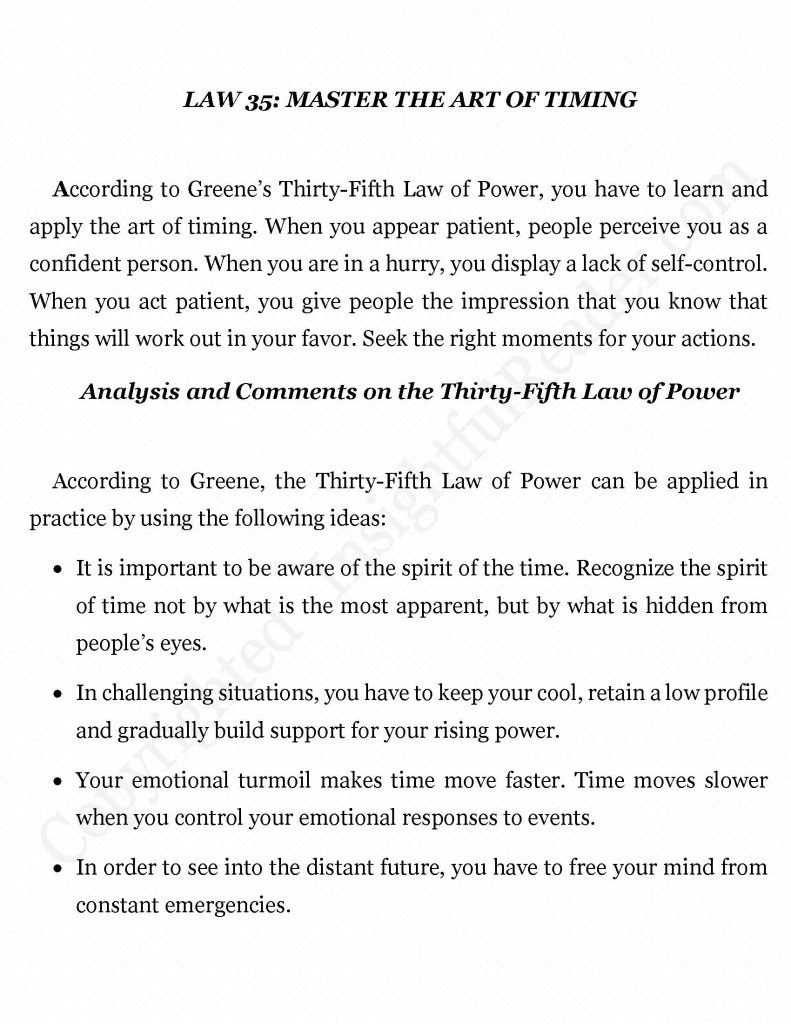
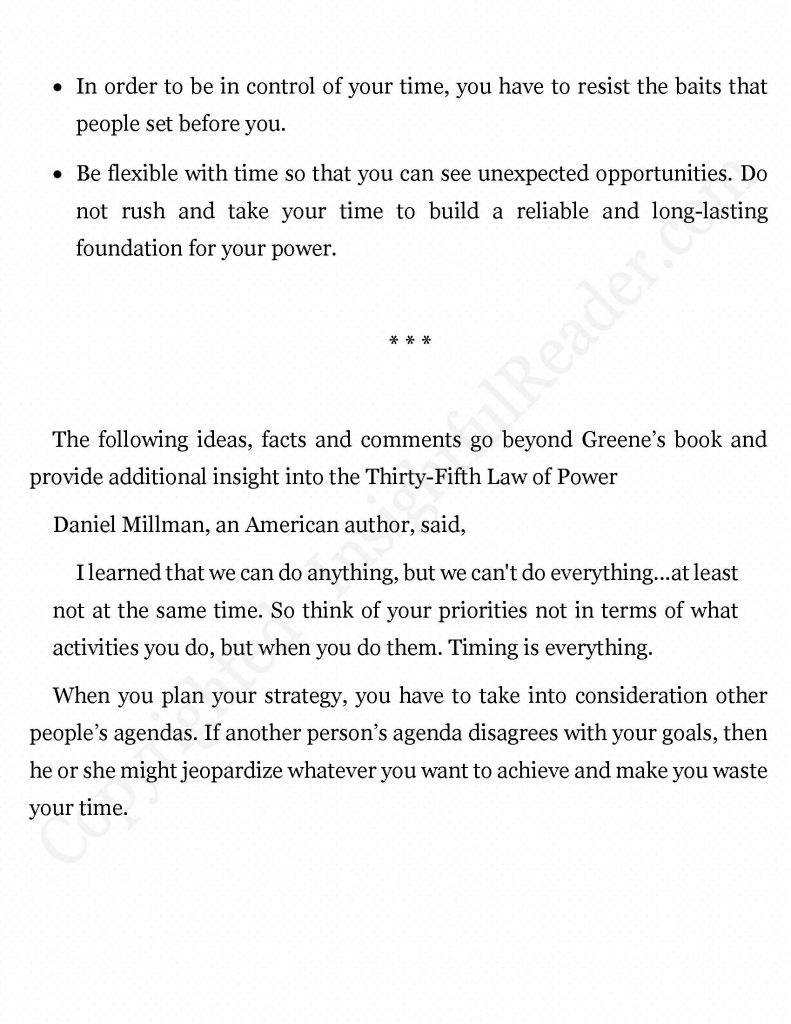
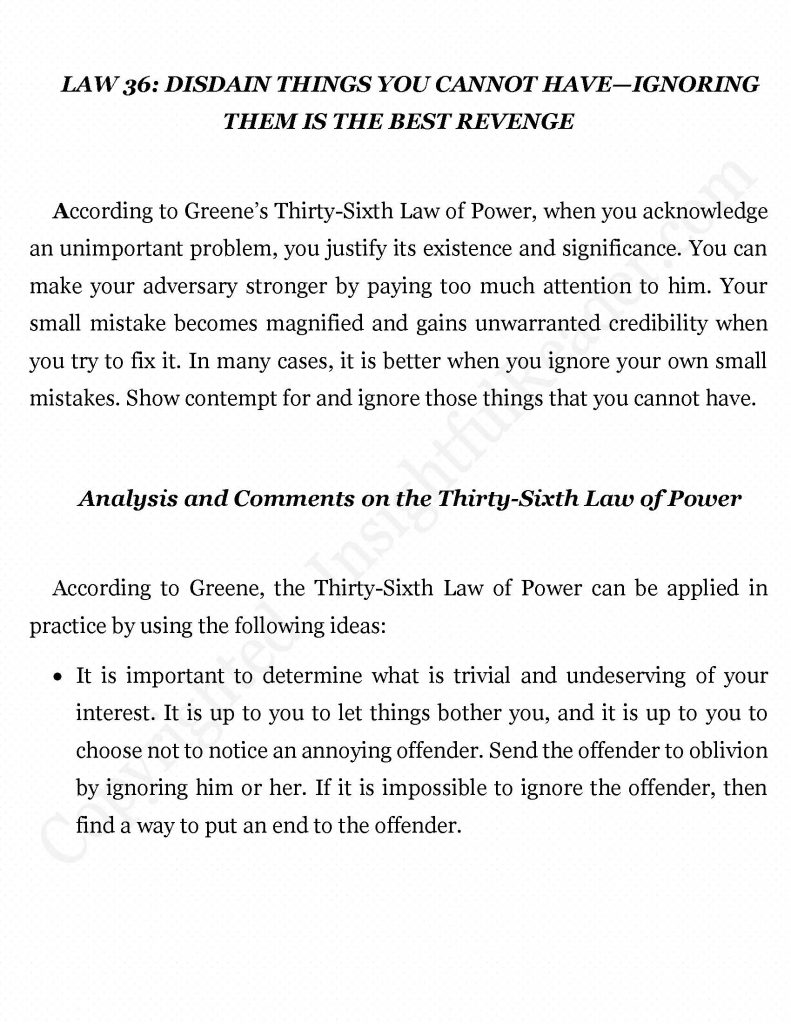
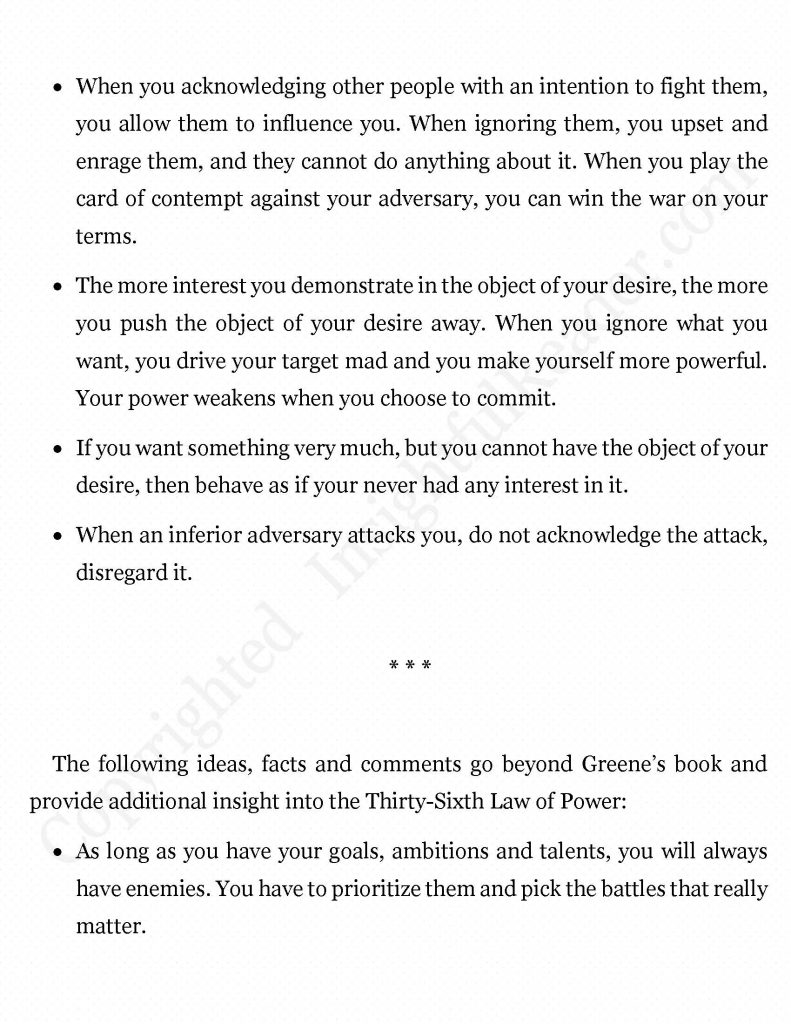

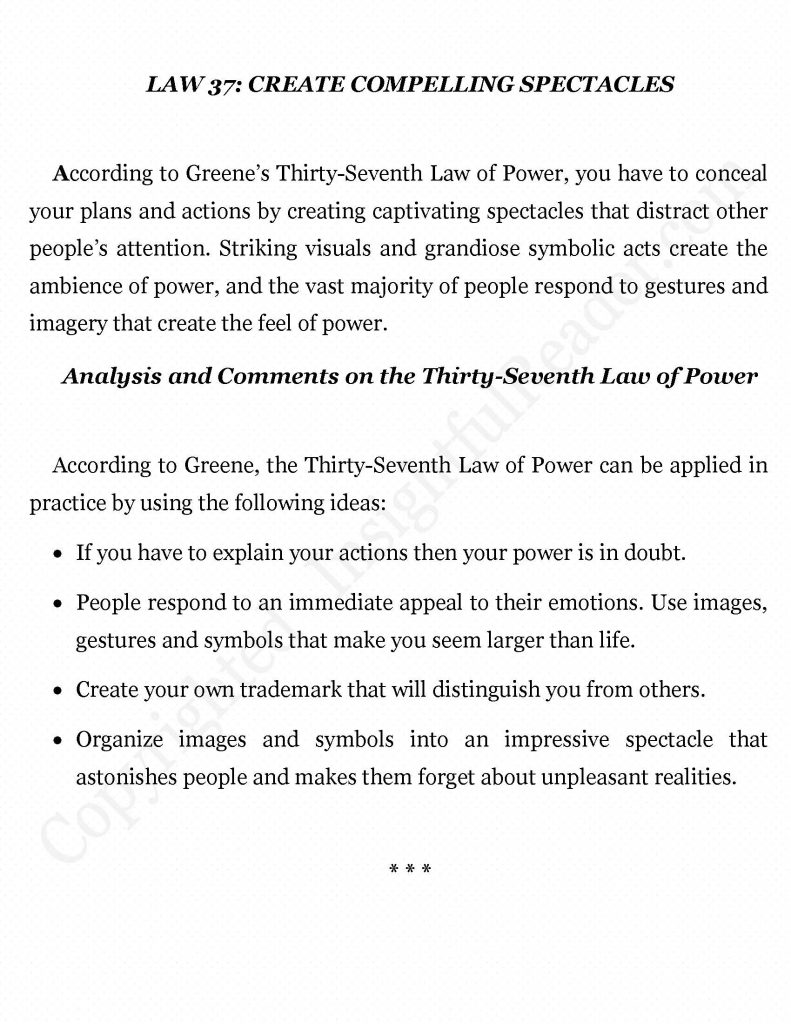

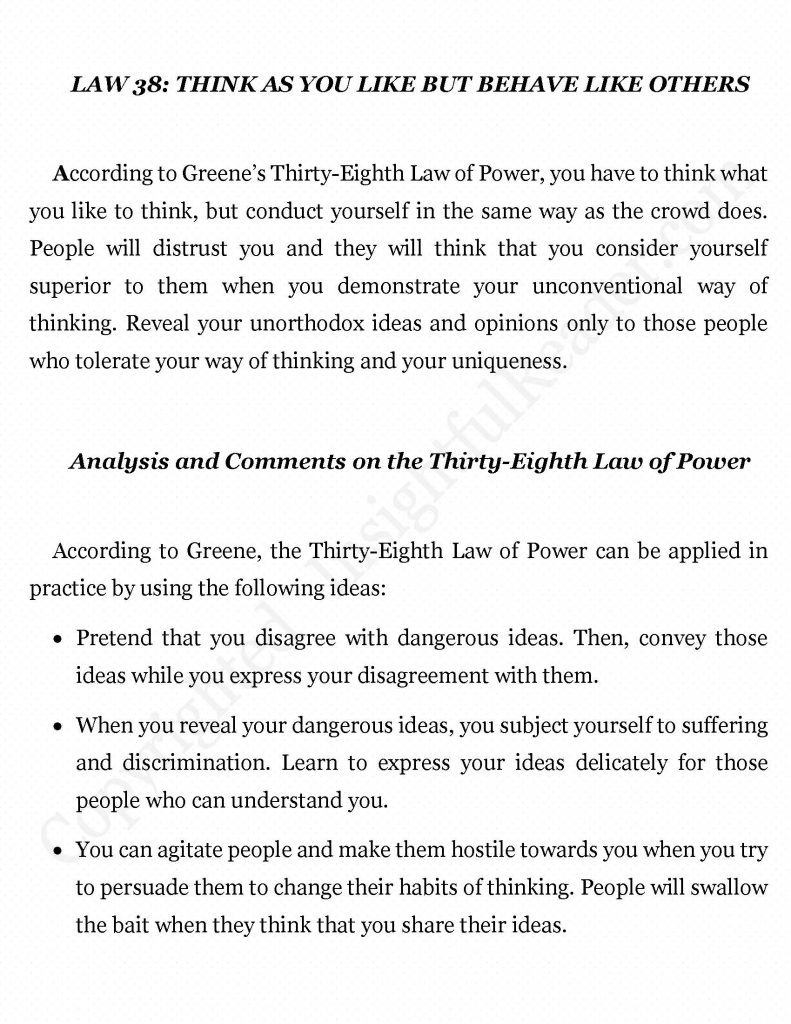
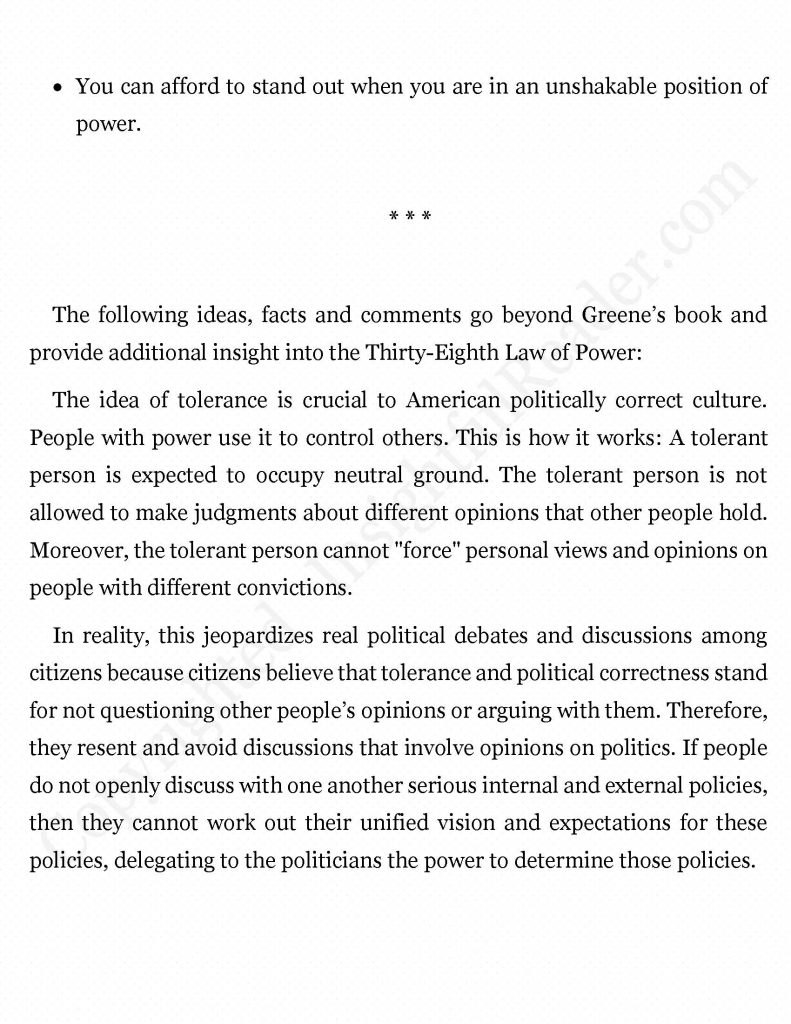

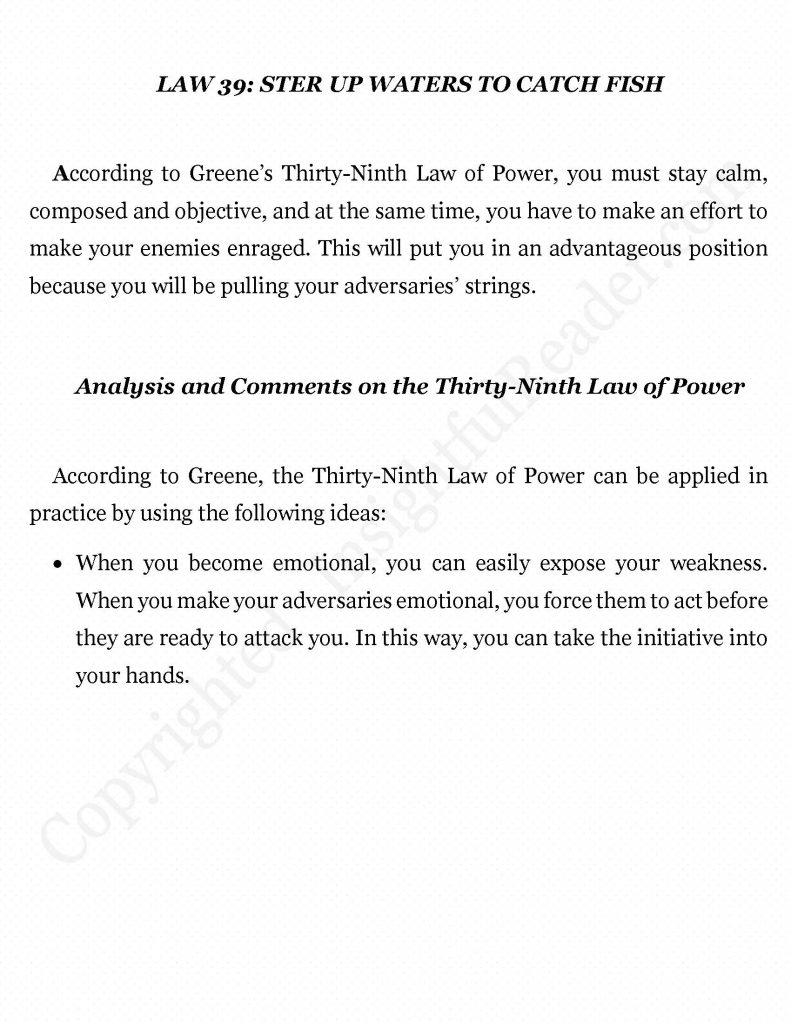
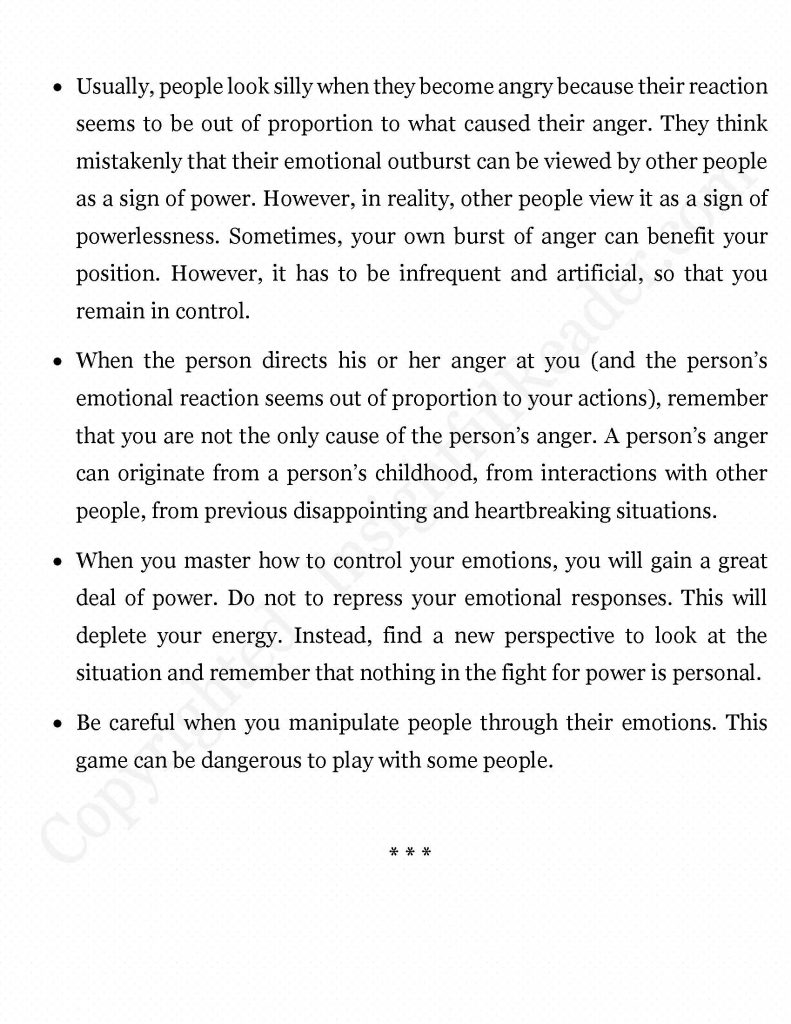

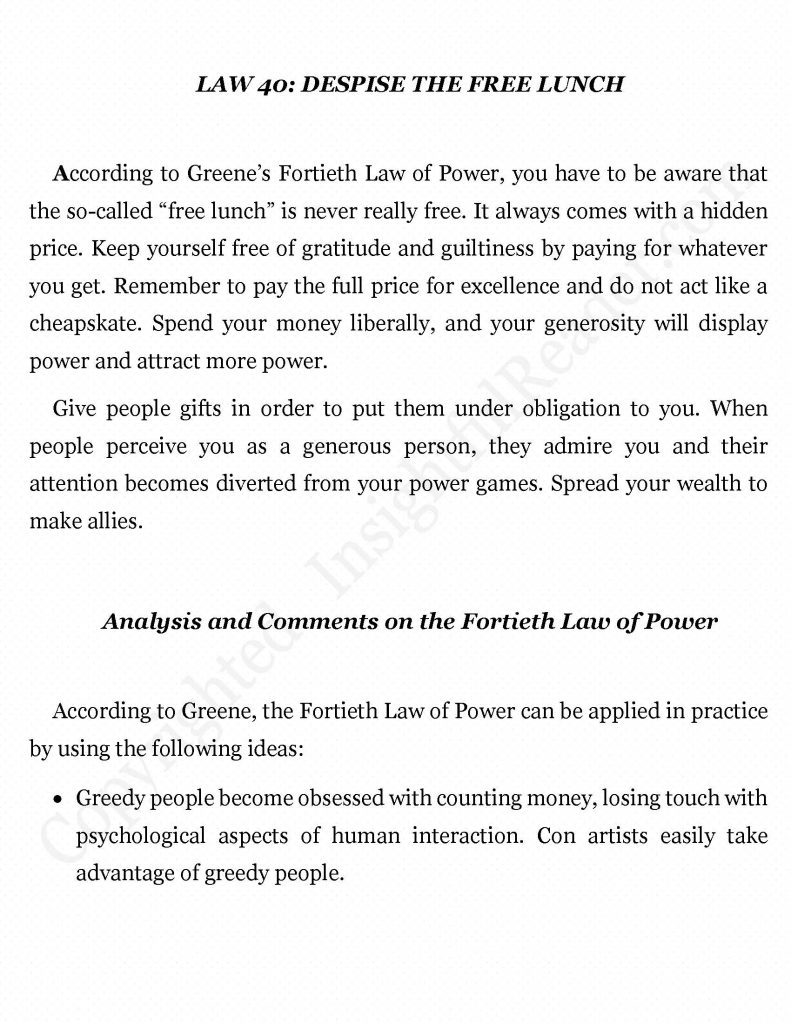


Go to Part I A Summary of Laws 41-48
Related content
Dead Wake by Eric Larson
Clinton Cash
Promoted links from around the web
Dead Wake by Eric Larson
Clinton Cash
